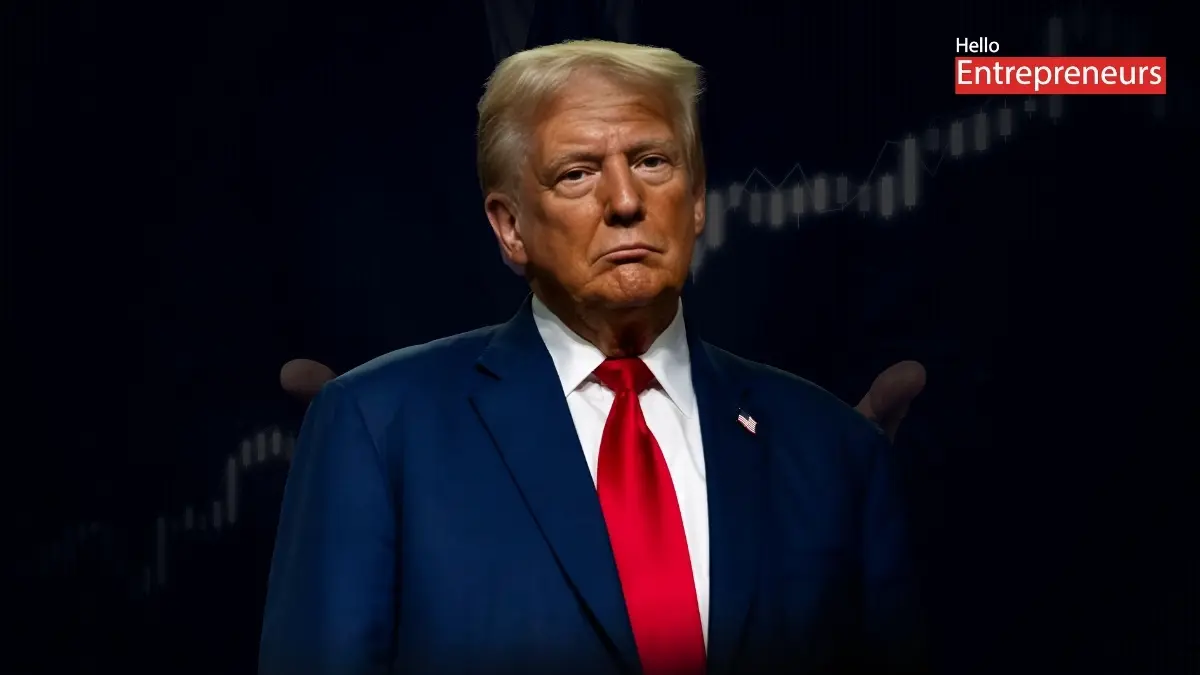Trend | Court Slams Tariff, Markets Party Like It’s 1999

India: In a week that felt more like the season finale of a financial drama than routine economic reporting, the U.S. federal trade court just dropped a gavel-shaped bomb on the Trump-era trade playbook. The court ruled that the former president’s “reciprocal tariffs” were, in legal terms, very much not okay. The decision cited “executive overreach,” which is judicial code for “you can’t just do whatever you want because you feel like it.”
If you’re wondering what a “reciprocal tariff” is, imagine a playground where every time one kid gets hit with a water balloon, he throws two back. That was basically Trump’s approach to trade: “You tax our steel, we tax your everything.”
But now, the court has said, “Enough with the balloon fights.”
Markets Gasp, Then Cheer
Wall Street didn’t just breathe a sigh of relief, it popped champagne. Stock futures jumped, the dollar flexed its muscles, Treasury yields climbed like they’d just gotten a shot of espresso, and oil prices slicked upward with optimism.
It’s not every day that a judicial decision turns into a global market rave, but investors have been craving a sense of normalcy after years of tariff ping-pong. The court ruling was seen as a green light for smoother international trade and fewer late-night tweet-induced market jitters.
The dollar rallied like it was auditioning for a Rocky reboot, strengthening against major currencies as if to say, “Look, we’re stable again.” Meanwhile, oil prices climbed on hopes of better trade flow, because nothing says global optimism like more barrels on the move.
The Ripple Effect: Chips, Stocks, and Skincare
The aftershocks of the court ruling didn’t stop at macro indicators. They rolled straight into corporate earnings season, where some players stood tall while others stumbled in high heels.
Nvidia, the poster child for AI-induced investor mania, shrugged off tariff turbulence with all the grace of a GPU-powered juggernaut. Revenues surged thanks to relentless demand for its AI and data center gear. While politicians were arguing over global trade, Nvidia was quietly counting billions.
Salesforce, meanwhile, reminded everyone that cloud computing isn’t just for storing cat photos. Strong earnings and a bullish forecast lifted its shares, as if to say, “Uncertain economy? We prefer recurring revenue.”
Not to be outdone in the drama department, E.l.f. Beauty went full glam by announcing a $1 billion acquisition of Rhode, the skincare brand owned by none other than Hailey Bieber. With this move, E.l.f. is essentially buying a Gen Z passport. Because when in doubt, slap a Bieber on it.
India: The Good, the Bad, and the Dividend
Back in India, corporate earnings painted a mixed picture.
Bata India, the iconic shoemaker, reported a 28% drop in quarterly profit, perhaps because no one wants new shoes when the economic floor feels shaky. Still, it boldly declared a dividend, as if to whisper, “Don’t worry, we’re not going barefoot anytime soon.”
IRCTC was on the express track, with profits jumping 26% thanks to strong catering and tourism demand. It turns out, people still love trains, especially when they serve samosas and hot chai.
Deepak Nitrite, the unsung hero of specialty chemicals, saw its share price spike after a strong Q4. Turns out, chemicals may not be sexy, but they sure are profitable.
Meanwhile, IndusInd Bank found itself in hot regulatory soup after SEBI banned its ex-CEO and four others. Governance concerns are like a stubborn pimple, hard to hide and very bad for your reputation.
Trump: Not Done Yet
Just when you thought Trump had exited stage left, he reappeared with a plot twist. The former president has now urged U.S. chip design software companies to stop selling to China. If you’re keeping score, that’s a pretty serious escalation in the tech cold war. The message? “If we can’t win the race, let’s unplug your router.”
Analysts fear this could rattle already fragile semiconductor supply chains, which are about as stable as a tower of Jenga blocks on a moving truck.
What Now?
The court’s ruling is not just a legal slap on the wrist. It potentially sets a precedent for limiting the powers of future presidents who might treat international trade like a personal chess match. It’s a wake-up call that, no, you can’t just drop a tariff on a whim and call it diplomacy.
Financial markets welcomed a U.S. Court ruling that blocks President Donald Trump from imposing sweeping tariffs on imports under an emergency-powers law.https://t.co/0uFytwdQxc
— The Hindu (@the_hindu) May 29, 2025
Markets have clearly welcomed this return to rule-based order, or at least a pause in the chaos. Investors are betting that with fewer surprise tariffs and more predictability, global trade can finally return to the business of, well, business.
As for Trump, he’s likely crafting his next move, possibly involving a press conference, a red hat, and several references to “fake courts.”
But for now, the world is exhaling. And if the markets are any indication, they’re doing it with a smile, and maybe a little celebratory skincare. After all, Rhode just got a billion-dollar makeover.
Also Read: Trump 2025 Tax Reform
<p>The post Trend | Court Slams Tariff, Markets Party Like It’s 1999 first appeared on Hello Entrepreneurs.</p>

























